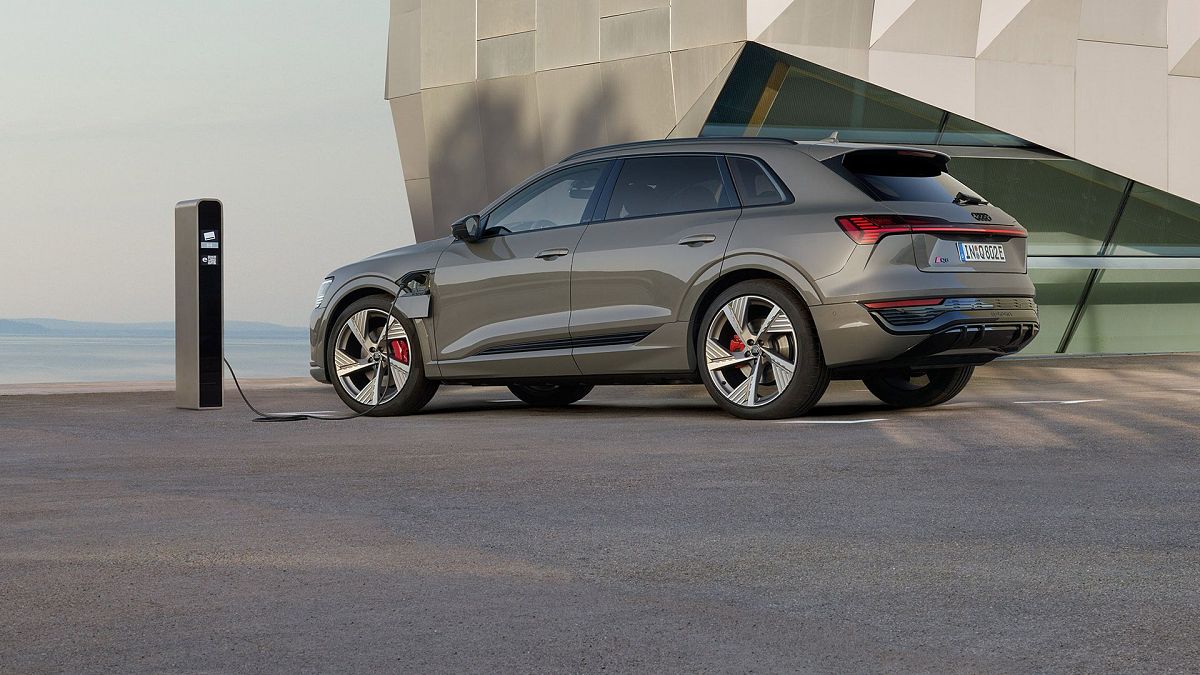European EV crisis: Audi’s Brussels factory faces uncertain future

Audi’s plant in Belgium’s capital assembles a €80,000 electric SUV, which is too expensive for Europeans. After 2025, production will likely relocate to Mexico, and workers and unions are not happy.
A state-of-the-art car factory in Belgium making Volkswagen models since 1949 has become symbolic of an all-too-apparent trend: European plants that produce electric cars are too expensive for the EU market and its demands.
Audi now wants to stop production, and this plant in Brussels’ Forest municipality will be put up for sale.
As the factory’s communications director Peter D’hoore explained to Euronews, they’re facing two choices: either convert the factory to produce other Volkswagen group models and components or sell it to another car manufacturer.
None of the solutions are that simple: the proposals that have come in so far have struggled to match Volkswagen’s criteria for potential buyers or investors.
“Only one potential investor has agreed to rework his offer, and now he will have some time to do so. It is important to us that as many people as possible remain employed at this site,” said D’hoore.**
In Brussels, Audi employs 3,000 people plus another 1,000 in related industries, and the unions are on a war path: they are asking the company not to pick the highest bidder but only to sell to someone who will guarantee the greatest number of jobs.
After a massive rally that paralysed the Belgian capital in mid-September, unions threatened with more strikes and protests.
They are vocally critical of the European automotive industry, which, in the transition to electric cars, mostly focused on producing large and expensive models out of ordinary people’s reach: the list price of the Q8 e-tron electric SUV, Audi’s flagship model built in Forest, is around €80.000.
“Car manufacturers wanted to make big profits with electric vehicles right away and did not accept that the transition phase would generate fewer dividends and profits,” Hillal Sor, a trade unionist at Metallos FGTB, told Euronews.
“So they bet everything on large, very luxurious, very expensive models that European citizens cannot afford. And so now in Europe we have overproduction, and that’s why groups like Volkswagen want to close factories in Belgium and Germany.”
The sales figures seem to prove him right: in the first eight months of this year, some 902,000 electric cars were purchased in the European Union, representing only 12.6% of the total number sold. Internal combustion cars, on the other hand, remain best-sellers.
However, the Belgian unions do not want to slow down the ecological transition and return to producing only cars with combustion engines.
They are asking for more public funds for the sector, as they told MEPs who came to visit the Brussels factory and speak to the workers about the issues they’re facing.
The first Strasbourg plenary session at the European Parliament this month will discuss the automotive sector crisis and its possible solutions, includingtariffs on Chinese electric cars, which are much cheaper than European ones, and investment projects that are somewhat difficult to realise.
“We really need a much more ambitious reindustrialisation plan. Not only through tariffs and protectionist measures,” Belgian MEP Estelle Ceulemans, one of the four visiting the Audi plant, told Euronews.
“To really encourage European and foreign companies to invest and create quality jobs, we will need to intervene on the tax aspect, but also the training of workers and research and development of new technologies.”
World News || Latest News || U.S. News
Source link



